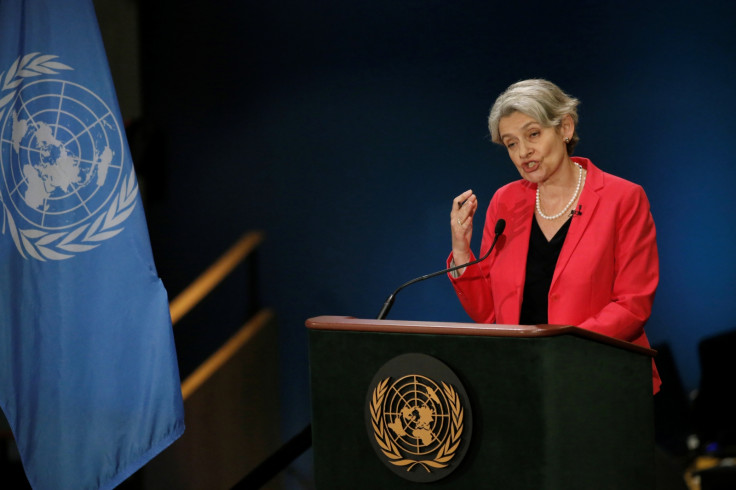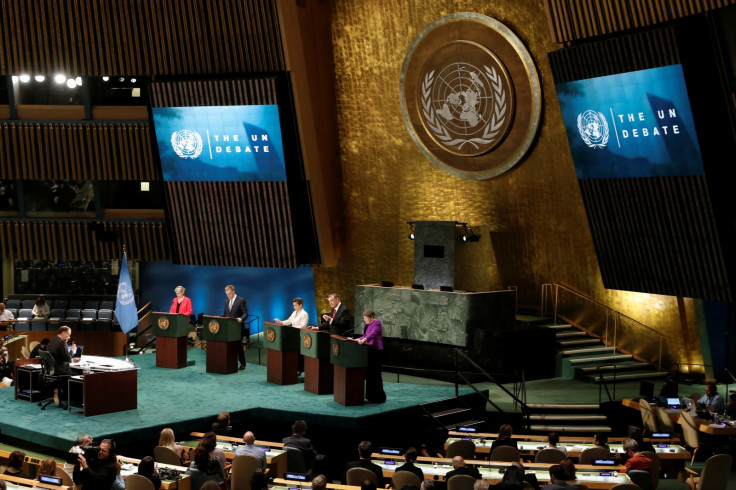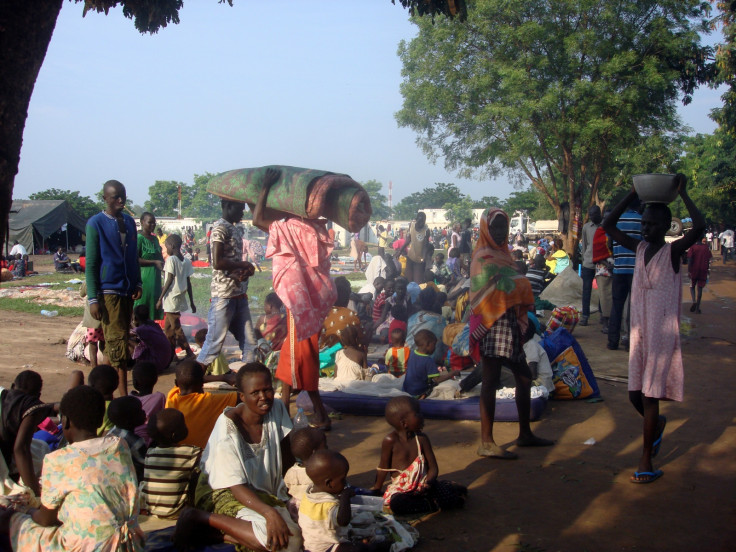UN Secretary-General frontrunner Irina Bokova says organisation must do more to stop Isis
The Unesco head tells IBTimes UK what she would bring to the position of world's top diplomat.

The United Nations must do more to help defeat Islamic State (Isis) and stop future conflicts before they start, a leading contender for UN Secretary-General has told IBTimes UK.
In describing what she would bring to the role of the world's top diplomat, the current director-general of Unesco, Irina Bokova, said the UN needed to better anticipate the potential for humanitarian catastrophes, such as the one that is ravaging Syria.

"I don't say we can always be successful because we see a changing geo-political environment, but I think there are a lot of lessons to be learnt after the Arab Spring, as we would call it, about how we want to help the transition of a country without having a huge humanitarian crisis.
"When it is such a complicated crisis, I think the United Nations and the Secretary-General should work closely with member states to try at least to avert some of the consequences," she said.
Bokova was speaking ahead of the first of three straw polls within the UN Security Council, to decide which of the dozen candidates the 15 members would prefer to take over from Ban Ki-moon when he steps down this year.
Bokova's experience at Unesco, which has spearheaded efforts to preserve monuments and sites such as Palmyra from the scourge of Isis (Daesh), could hold her in good stead as head of the UN in tackling militant Islamism.
Describing the goals of Isis as counter to what the UN has achieved over seven decades, she said cultural dialogue and education were key to curbing jihadism which is "one of the threats to peace, one of the threats to societies," adding that "Isis/Daesh is about the destruction of societies. They pit communities against one another".
The UN's reputation
The UN's reputation has taken a hit in certain areas, in particular with the crisis in South Sudan due to perceived inertia within the Security Council to agree on a peace plan.
There is also criticism of UN troops for not taking decisive enough action to prevent slaughter.
As a committed believer in multi-lateralism, Bokova says the crisis shows just how much people still believe in the UN as a supra-national institution because: "when people are fleeing persecution, they go to the United Nations because they don't have any other place to go.
"South Sudan is really an extremely worrying case. I have been in South Sudan three years ago and I know how important it is to have political stability and understanding.
"The Security Council has to take its role and its responsibility, particularly when we have such a huge humanitarian disaster and the possibility of bloodshed," she said adding that the Secretary-General needed to help the UN in future work with regional actors, such as the African Union.
On the same continent, the sexual abuse scandal in the Central African Republic by UN peacekeepers has tarnished the organisation's reputation. Bokova says there should be "zero tolerance" to such sexual crimes.
"It has woken up everybody to the role of the peacekeepers in protecting civilians and maintaining peace. The difficulty of course we know that is not something that the Security General or the United Nations can take a decision on, it is about the member states that provide the peace keepers."
But she points to the considerable successes of the UN such as the agenda for sustainable development that was adopted in December 2015 and the Paris agreement within the framework of the United Nations Framework Convention on Climate Change (UNFCCC). There are also relatively unheralded successes where the UN has been instrumental, such as peace keeping missions in Ivory Coast and East Timor.

Frontrunner
Bokova, who speaks four of the UN's six official languages, is among the favourites, with some touting her as the frontrunner. The process has been the most transparent to date, with all the candidates putting themselves up for a global hustings, fielding questions in public and online about their vision.
The speculation has been all along that is the turn of someone from Eastern Europe to take up the mantle. However, selection simply on the basis of rotation would not chime with this more transparent process and so it is unclear how much of a factor Bokova's Bulgarian nationality will be.
The chatter is also about the post going to a woman for the first time, and in this regard, she has already broken new ground when she became the first female head of Unesco in 2009.
Other women in the frame are former New Zealand prime minister Helen Clark, who heads the UN Development Programme, Argentina's foreign minister Susana Malcorra and former Croatian foreign minister Vesna Pusic.
Regarding the significance of a female UN head, she says: "I think it is important, it changes the culture, it changes the stereotypes. It is not about a different approach it's about telling the other half of humanity that they can take all the same jobs."
The first UN Secretary-General, Trygve Lie, described his role as the "most impossible job in the world". The challenges of the 21<sup>st century would surely make it all the more harder, particularly as the organisation is now in its 71<sup>st year.
Bokova is clear what would constitute a successful tenure of a Secretary-General who needs to be a "moral leader.
"I think the Secretary-General has to have the trust of the Security Council. If they do, they can work with them and try to bring everybody to the table so that better solutions are found, so that there is less tension and less conflict in the world. Then we would say that the Secretary-General is successful."
The process of selecting the next UN Secretary-General
Although touted as the most open process yet with the candidates going on the hustings and answering questions from the public – the final selection is still shrouded in secrecy.
Ambassadors will sit behind closed doors for a secret vote on each of the candidates with a ballot marked 'encourage', 'discourage' or 'no opinion'.
The results of the first round will not be announced but will be given to the governments who put forward the candidates.
Candidates are expected to drop out after the first round. Ultimately the five nations that hold a veto on the Security Council have to agree on a candidate, which is expected to be finalised by October.
While there is no requirement for them to take any notice of the hustings, groups like the United Nations Association UK hopes that the relative transparency so far will make it difficult for the Council to make a bad decision or foist at the last minute an unwanted candidate on the General Assembly, which will rubber stamp the Council's preference.
© Copyright IBTimes 2025. All rights reserved.





















